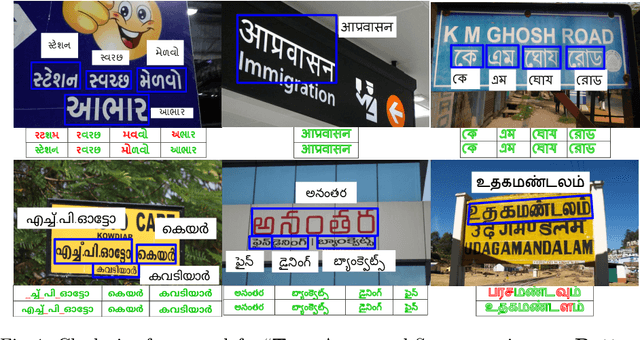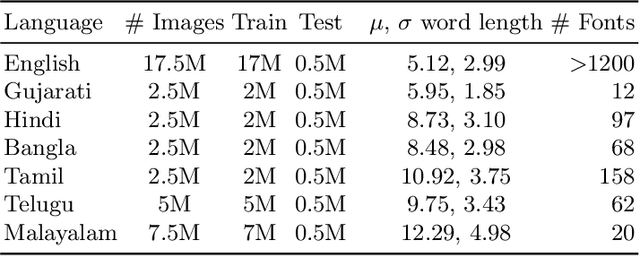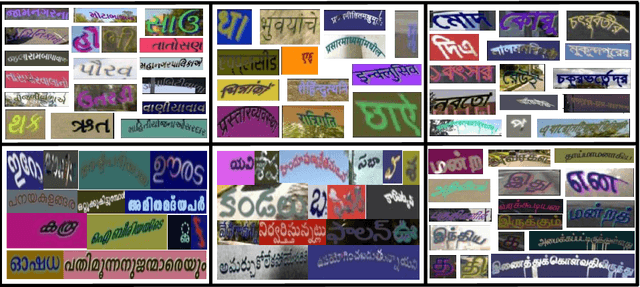Transfer Learning for Scene Text Recognition in Indian Languages
Paper and Code
Jan 10, 2022



Scene text recognition in low-resource Indian languages is challenging because of complexities like multiple scripts, fonts, text size, and orientations. In this work, we investigate the power of transfer learning for all the layers of deep scene text recognition networks from English to two common Indian languages. We perform experiments on the conventional CRNN model and STAR-Net to ensure generalisability. To study the effect of change in different scripts, we initially run our experiments on synthetic word images rendered using Unicode fonts. We show that the transfer of English models to simple synthetic datasets of Indian languages is not practical. Instead, we propose to apply transfer learning techniques among Indian languages due to similarity in their n-gram distributions and visual features like the vowels and conjunct characters. We then study the transfer learning among six Indian languages with varying complexities in fonts and word length statistics. We also demonstrate that the learned features of the models transferred from other Indian languages are visually closer (and sometimes even better) to the individual model features than those transferred from English. We finally set new benchmarks for scene-text recognition on Hindi, Telugu, and Malayalam datasets from IIIT-ILST and Bangla dataset from MLT-17 by achieving 6%, 5%, 2%, and 23% gains in Word Recognition Rates (WRRs) compared to previous works. We further improve the MLT-17 Bangla results by plugging in a novel correction BiLSTM into our model. We additionally release a dataset of around 440 scene images containing 500 Gujarati and 2535 Tamil words. WRRs improve over the baselines by 8%, 4%, 5%, and 3% on the MLT-19 Hindi and Bangla datasets and the Gujarati and Tamil datasets.
 Add to Chrome
Add to Chrome Add to Firefox
Add to Firefox Add to Edge
Add to Edge